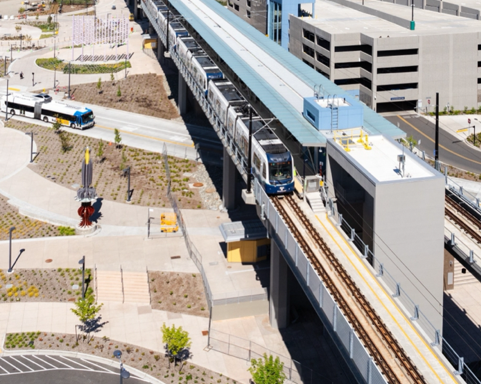Sound Transit shifts course on West Seattle Link Extension amid rising costs: Enterprise Initiative to reshape future plans
Thu, 08/07/2025
Sound Transit is embarking on a comprehensive agency-wide initiative to tackle significant financial challenges, a move that will inherently impact the financing and timing of major projects like the West Seattle Link Extension (WSLE). This new, broader strategy, outlined in Motion M2025-36, effectively supersedes an earlier, more narrowly focused effort for WSLE.
Initial Alarm Over West Seattle Link Extension Costs
The initial concern arose from substantially rising project costs for the West Seattle Link Extension. At a September 19, 2024 Executive Committee meeting, Sound Transit staff revealed that updated preliminary cost estimates for WSLE were anticipated to be between $6.7 billion and $7.1 billion (2024$). This figure significantly exceeded the $4.0 billion (2023) estimate in the agency's long-range financial plan and the $5.1 billion to $5.6 billion (2024) from the project's Final Environmental Impact Statement (FEIS). Factors contributing to these increases included high regional infrastructure demand and the national construction economic outlook, impacting labor and material costs.
In response to these escalating figures, the Sound Transit Board approved Motion M2024-59 on September 26, 2024. This motion directed the chief executive officer to develop a workplan by October 10, 2024, specifically addressing measures to improve the agency’s financial situation and inform future "baselining" decisions—when major construction dollars are committed—for WSLE. The workplan was intended to explore programmatic, financial, and project-level measures, including strategies like accelerating grant revenues, pursuing lower-cost federal loans, improving cost efficiencies, seeking additional revenue sources, strategic property acquisition, partnerships, and value capture programs.
Shift to a Comprehensive Enterprise Initiative
However, the agency quickly recognized that the challenges extended beyond a single project. Motion M2025-36, which explicitly supersedes M2024-59, acknowledges a broader range of issues impacting Sound Transit and other large public agencies since 2014-2016. These include:
• Lower-than-expected revenues.
• Rising costs across both capital projects and service delivery.
• New post-pandemic ridership patterns.
• Ongoing uncertainty around tariffs and federal funding commitments.
The Board determined that without proactive measures, the entire ST3 program would become unaffordable, risking the agency's ability to operate a dependable, resilient, and safe system.
Impact on WSLE Financing and Timing
The adoption of Motion M2025-36 and the launch of the "Enterprise Initiative" signify a fundamental shift in how Sound Transit will approach its financial and operational future, with direct implications for the West Seattle Link Extension:
• Financing Integration: While the cost pressures on WSLE were the initial catalyst, the project's financing will now be evaluated within a much larger context. The Enterprise Initiative's goal is to achieve a "balanced and affordable long-range finance plan" for the entire agency, encompassing planning, capital, operations, maintenance, and finance. This means WSLE's cost-saving measures and funding strategies, like those initially proposed in M2024-59, will be integrated into this comprehensive financial re-evaluation.
• Revised Timing and Process: The immediate workplan timeline for WSLE, set to inform baselining decisions by October 2024, has been superseded. Instead, WSLE's progress will now be contingent on the outcomes of the Enterprise Initiative. The initiative’s detailed framework will be considered in Fall 2025, with major outputs scheduled for later:
◦ Updates to the System Plan (including ST3) by the end of Q2 2026.
◦ An adopted Long-Range Plan by Q3 2026.
◦ An updated Long-Range Financial Plan by Q4 2026.
This expanded timeline suggests that the final baselining and commitment of major construction dollars for WSLE will likely be delayed as it awaits the completion of this broader strategic realignment. The project's progression through design will now be subject to this new, comprehensive process designed to proactively manage affordability and service delivery across the entire system.
The Enterprise Initiative will be guided by principles emphasizing community engagement, transparent governance, data-driven decisions, regional connectivity, prioritizing the passenger experience, and protecting public investments with fiscal integrity. These principles will shape how decisions, including those impacting WSLE, are made moving forward


